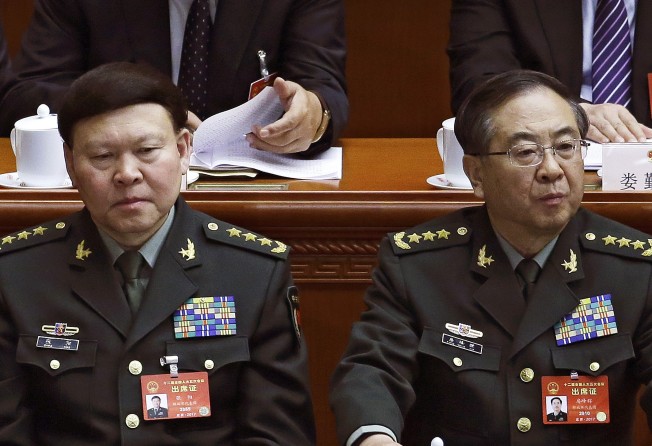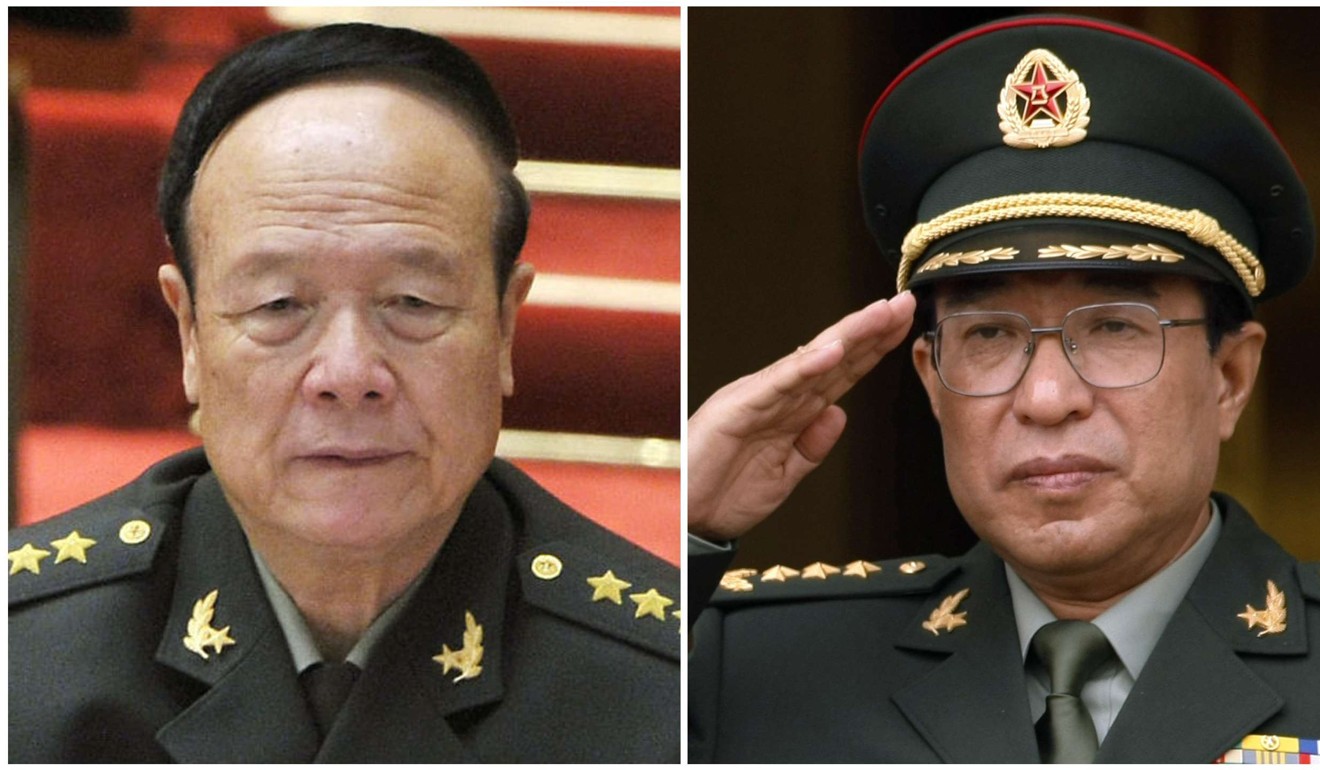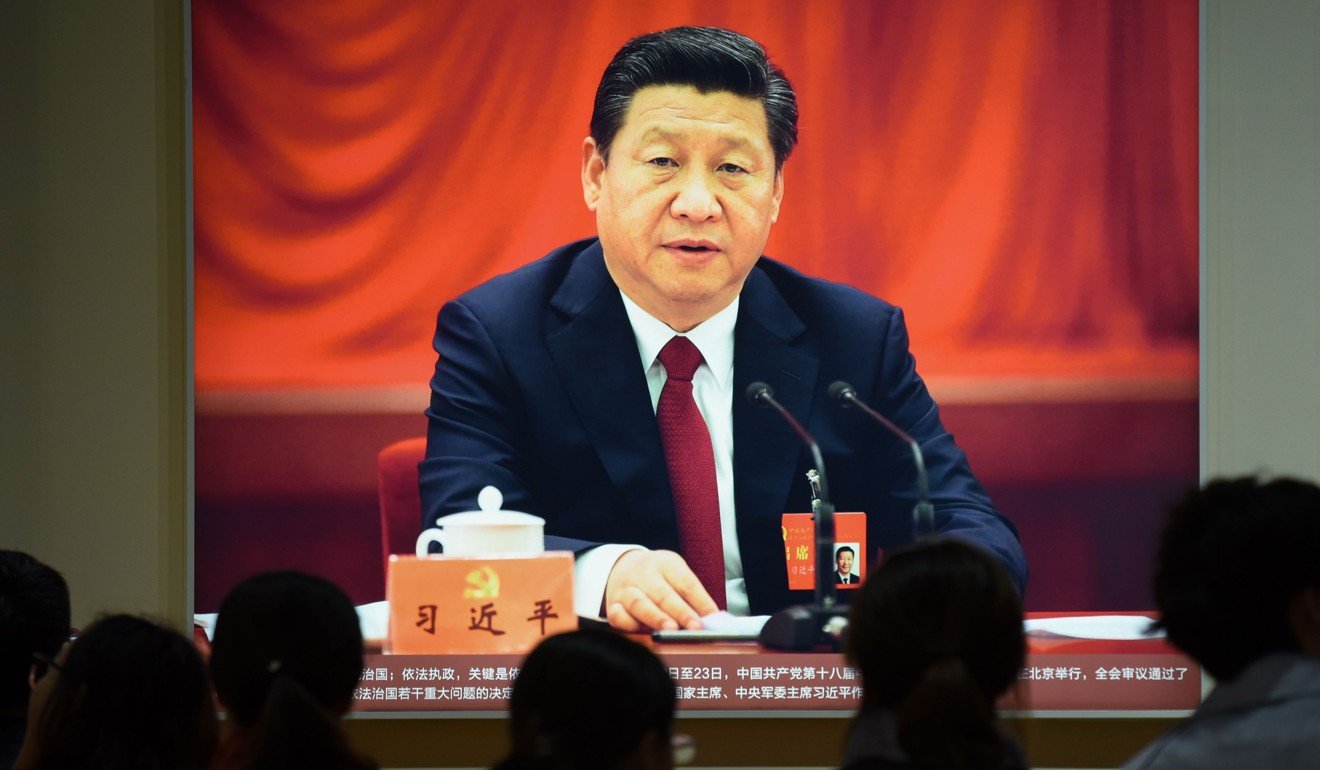Why Xi’s anti-corruption drive in China’s military needs a long-term solution
Cary Huang says the number of PLA generals and officers caught in China’s anti-graft net is staggering but, given the lack of institutional reforms, the campaign may be more about efforts to firm up Xi Jinping’s grip on power

Corruption in the People’s Liberation Army once again hit the global media headlines recently with reports that a disgraced Chinese general under investigation for graft had hanged himself at his Beijing home.
General Zhang Yang, a former head of the Central Military Commission’s Political Work Department, took his own life on November 23 amid a probe into “serious disciplinary violations”.
Zhang and another military heavyweight, former chief of general staff, general Fang Fenghui, alongside their disgraced bosses, former CMC vice-chairmen Guo Boxiong and Xu Caihou, were among the most senior officers to fall victim to the anti-corruption crackdown launched by President Xi Jinping since 2012.
Guo and Xu, both accused of bribery and embezzlement involving large sums of money, were protégés of former president Jiang Zemin. The disgraced officers were once considered political stars and rose quickly through the ranks under previous administrations.
Anti-graft tsar Wang expected to be named China’s vice-president
Corruption in the armed forces is so pervasive that it threatens to undermine China’s ability to wage war. In the past five years, 13,000 PLA officers, including more than 100 generals, have been investigated and disciplined. Xinhua said the number “is even greater than the number of army generals who died in the battlefield during revolutionary times”. Mathematically, no major military in the world is more corrupt than the PLA, in terms of numbers and the seniority of the servicemen convicted.
Xi, who is also the chairman of the CMC, is credited with using the crackdown to advance his goal of modernising the army by ridding it of the epidemic of corruption and promoting the professionalism of its officer classes.
But some accuse him of using the campaign to purge opponents and shore up his absolute grip on the army, one of the most powerful political institutions in China, which enjoys almost absolute immunity from external oversight. Accompanying the campaign, Xi has also overseen a dramatic reshuffle of personnel within the rank and file. So far, Xi has replaced 70 of the 100 most senior PLA positions and installed commanders more loyal to him to fill the void.

Xi makes no secret of the political motivation behind the campaign, saying these disgraced officers “engaged in political conspiracy activities”. Zhang and Feng were under investigation over their links to Guo and Xu amid an ongoing campaign to eliminate Guo and Xu’s “pernicious influence” in the PLA.
Zhang had publicly pledged allegiance to Xi and denounced Guo and Xu. But, in a scathing commentary last week, the People’s Liberation Army Daily called Zhang “two-faced” and accused him of “paying lip service by shouting about loyalty to Xi”.
Zhang’s suicide came amid a PLA campaign pledging to be “absolutely loyal, honest and reliable to Xi” in new guidelines released by the CMC last month.

As the saying goes, when you lose a sheep, it is more important to mend the hole in the fence than spend time looking for it.
Absolute power corrupts absolutely, and the best way to stamp out corruption is to ensure that power is exercised transparently, with external oversight. But, to date, there has been no substantive institutional reform, namely in establishing an effective corruption-prevention mechanism, despite high-profile political noise. So the ongoing campaign might be more of a short-term effort to clean house rather than a long-term solution to mend fences.
Cary Huang is a senior writer at the Post